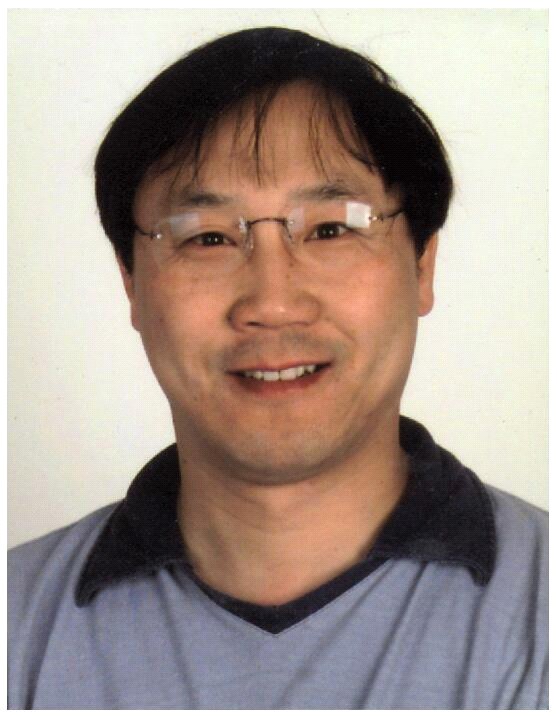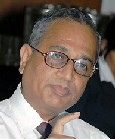|
|
Conference
Keynote Speakers
Julio
Collado-Vides

|
Dr. Collado-Vides
is an international leader in the bioinformatics of gene
regulation in bacteria. He did the mathematical proof
deriving the grammatical modeling of gene regulation,
supporting novel algorithms of regulation in bacterial
genomes. His laboratory supports RegulonDB and regulation
in EcoCyc, two highly recognized databases. He has implemented
novel algorithms for the prediction of promoters, operons,
and functionally associated genes. He contributed to the
the E.coli genome published in Science, and to the understanding
of topological and dynamical properties of the regulatory
network.
His research, supported by US NIH funding for the last
8 years, has generated around 85 peer-reviewed papers
in international journals and 13 chapters in books with
more than 5200 citations, in addition to two edited books
published by MIT Press. Among several awards, he has been
recognized with the National University Prize and the
Robert Kennedy Professorship of the Americas from Harvard
University (2007).
Current Director of the Center for Genomic
Sciences, he was President Founder of the Mexican Society
of Genomics, co-founder of the Undergraduate Program in
Genomics at UNAM, and Principal Investigator of the grant
that generated the first closed genome sequence of an
organism generated in Mexico, Rhizobium etli. He has contributed
significantly to the emergence of genomics and bioinformatics
in his country.
|
| |
| Sean
Grimmond 
|
"Sequencing
the transcriptome in toto"
Dr
Sean Grimmond pioneered microarray technology at the Medical
Research Council Genetics Unit (Harwell, UK) before returning
to Australia in 2000 under the CJ Martin Career Development
Award. He joined the Institute for Molecular Bioscience
in 2004 as head of IMB’s microarray facility,. Sean
was named Eppendorf Young Australian Scientist 2004, and
in 2007 took up an NHMRC Senior Research Fellowship. He
is a member of the Editorial Review Board of Differentiation,
is active in the FANTOM and US National Institutes of
Health Stem Cell Anatomy networks, and is President of
the Australasian Microarray and Associated Technologies
Association (AMATA). During 2006 Sean was scientific lead
on a new strategic partnership with Applied Biosystems
Inc. that has introduced the ABI next-generation SOLiD
sequencing platform to Australia. |
| |
Ming
Li
 |
"Modern
homology search"
Ming
Li is a Canada Research Chair in Bioinformatics and
Professor of Computer Science at the University of Waterloo.
He is a fellow of Royal Society of Canada, ACM, and
IEEE. He is a recipient of Canada's E.W.R. Steacie Fellowship
Award in 1996, and the 2001 Killam Fellowship. Together
with Paul Vitanyi they have pioneered the applications
of Kolmogorov complexity and co-authored the book "An
Introduction to Kolmogorov Complexity and Its Applications".
His
main research is currently focussed on protein structure
prediction.
|
| |
Yi-xue
Li

|
"Modeling
human genome-wide combinatorial regulatory networks
initiated by transcription factors and microRNAs using
forward and reverse engineering"
Yi-Xue
Li is Director of the Shanghai Center for Bioinformation
Technology, he is Research Professor at Shanghai Institutes
for Biological Sciences, Chinese Academy of Sciences,
and Dean of the Department of Bioinformatics and Biostatistics
of Shanghai Jiaotong University. Dr. Li received his
BSc. and Msc. degrees in theoretical physics from Xinjiang
University in 1982 and 1987, respectively. He gained
his Ph.D. degree in theoretical physics from the University
of Heidelberg in 1996. Dr. Li worked as a bioinformatics
researcher at the European Molecular Biology Laboratory
(EMBL) from 1997-2000 and then returned to Shanghai.
Dr.
Li's research interests include bioinformatics, systems
biology and computational biology. Currently, he is focusing
on proteomics informatics research. Dr. Li has published
more than 80 journal papers. His research results have
been cited by more than 1000 researchers worldwide.
|
| |
John
Mattick

|
"A
new understanding of the human genome"
Professor
Mattick was responsible for the development of the IMB
with Professor Peter Andrews. In 1988 he was appointed
the Foundation Professor of Molecular Biology and Director
of the Centre for Molecular Biology and Biotechnology
at the University of Queensland.
The
Centre was subsequently designated a Special Research
Centre of the Australian Research Council (1991-1999)
and was re-named the CMCB, with its primary focus being
the molecular genetics of mammals and their diseases,
including genome mapping, gene regulation, developmental
biology and cell biology.
He
was responsible for the development of one of the first
recombinant DNA-based vaccines, and was the recipient
of the 1989 Pharmacia-LKB Biotechnology Medal from the
Australian Biochemical Society, and the inaugural (2000)
Eppendorf Achievement Award from the Lorne Genome Conference.
His current research interest is in the role of non-coding
RNAs in the evolution and development of complex organisms.
He has published over 100 scientific papers.
Professor
Mattick is also, among other things, a member of the Australian
Health Ethics Committee and the Research Committee of
the NHMRC. He is a foundation member of the recently established
International Molecular Biology Network (Asia-Pacific),
was a foundation member of the Board of ANGIS (the Australian
National Genome Information Service) from 1991-2000 and
is currently a member of the Board of the Australian Proteome
Analysis Facility. He is a member of the Queensland Biotechnology
Advisory Council and on the Scientific Advisory Boards
of several institutes nationally and internationally.
He was appointed as an Officer in the Order of Australia
in June 2001. |
| |
|
Cliona Molony
|
"Reconstructing
the circuits of disease: from molecular states to physiological
states"
Bio to come
|
Conference
Invited Speakers
|
Ashok
Kolaskar
|
"India's
Bioinformatics Development through Distributed Information
Network"
Ph.D.,
D.Sc.(hc),F.N.A.,FNA.Sc.
Advisor, National Knowledge Commission, New Delhi
Managing Director, DSK Global Education & Research
Pvt.Ltd.
Former Vice-Chancellor, University of Pune and Professor,
Biotechnology & Bioinformatics, University of Pune
A
career of over 31 years marked by numerous accomplishments
in bioinformatics research, teaching, mentoring, higher
education reforms, and managing large institutions with
outstanding success.
As
advisor to National Knowledge Commission, identified several
areas in need of the Commission’s scrutiny and worked
in formulating recommendations and reports to the Hon’ble
Prime Minister. Some of the significant contributions
are the in depth study and reports on the Open Access
and Open Educational Resources around the world, Research
and Education Networks, University Education, Distance
Education etc. Designed and directed primary research
across India to understand the facilitators and obstacles
of innovation in the country and authored a comprehensive
report on the same. Directing a similar project at the
present time on entrepreneurship in the country.
|
|